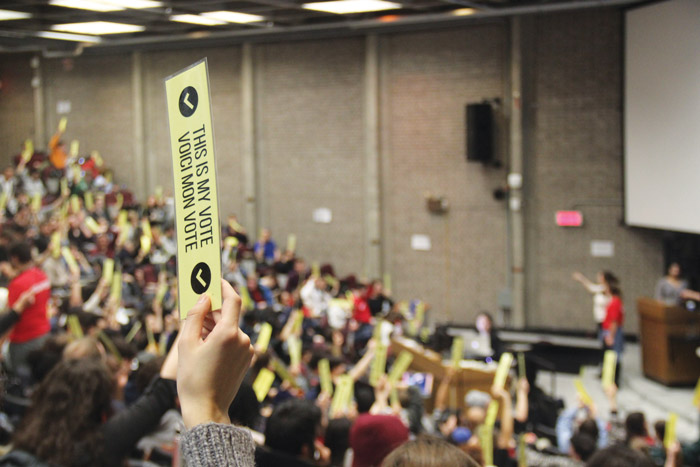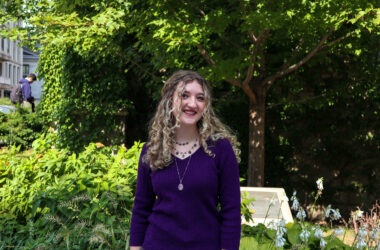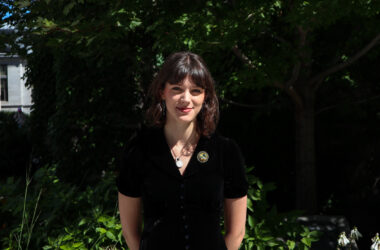Being Israeli is something that I keep to myself at McGill. After returning to school this September, my peers often asked what I did over the summer. I told them that I had been travelling, but omitted that I had actually staffed a trip that took Jewish-Canadian 17-year-olds to Israel. I wasn’t willing to share my summer whereabouts—not because of my own sentiments about Israel, but because I anticipated negative responses from other students.
It is safe to say that many students at McGill have some kind of relationship with Israel, either positive or negative. Having been born in Haifa, I have a personal relationship with the Israeli-Palestinian conflict. When I was two years old, my family decided it would be best that we move to Canada because, among other things, a wave of violence threatened the city in which we lived. When we immigrated, the Jewish community that welcomed us on the other side of the Atlantic often told my family that most instances of anti-Israel sentiment were really just attacks on Jewish people. This insinuation made my Israeli identity inseparable from my Jewish one, and, thus, discourse involving the topic of Israel also involved my religion.
It was not until I was older that I realized that if I coupled my personal identity so strongly with an international conflict, it would make things extremely difficult.
When my 17-year-old self participated in the same summer trip I chaperoned this year, I quickly realized that those who live in the region don’t have the privilege of being able to separate identity from conflict. Living in a society full of the daily reminders of war and violence suffocates positive dialogue between groups.
Those with Zionist or Palestinian identities are not always confined to the borders of the Middle East. As a result, heated exchanges tend to occur, even within a context as peaceful as Canada. But, by living here, we have the privilege of being able to take a step back from the conflict and discuss it in a more clear-headed way. We can use empathy to understand the perspectives of others and construct a more inclusive narrative that is not just consistent with our own identities.
This is not to say that we should forget our personal experiences to foster a better dialogue; I realize that the conflict is far more complex than my connections to or understanding of it. My ability to discuss international conflict is hindered when an emotional connection to it becomes the most relevant reference point.
When in Israel this summer, I ran a critical-thinking workshop for the teenage participants. I asked them to read articles and learn about perspectives that were contrary to what they understood and knew. I wasn’t asking them to forget their own connections and embrace someone else’s, but simply that they engage with the narratives that others carry with them. If hormonal teenagers can inform their own convictions, so can we.
Many of them have grown up in an environment similar to mine, surrounding themselves with perspectives and opinions which mirror their own. We tend to affiliate ourselves with friends, peers, and coworkers with whom we agree: It requires an active effort to engage with those we don’t.
The best scenario that I can foresee is one in which our identities spark conversations, but the presence of a foreign opinion does not end them. It may seem trivial to teach university students the power of empathy, but, when we are so enthralled by our own connections, we may benefit from a reminder that other perspectives are worth considering.







